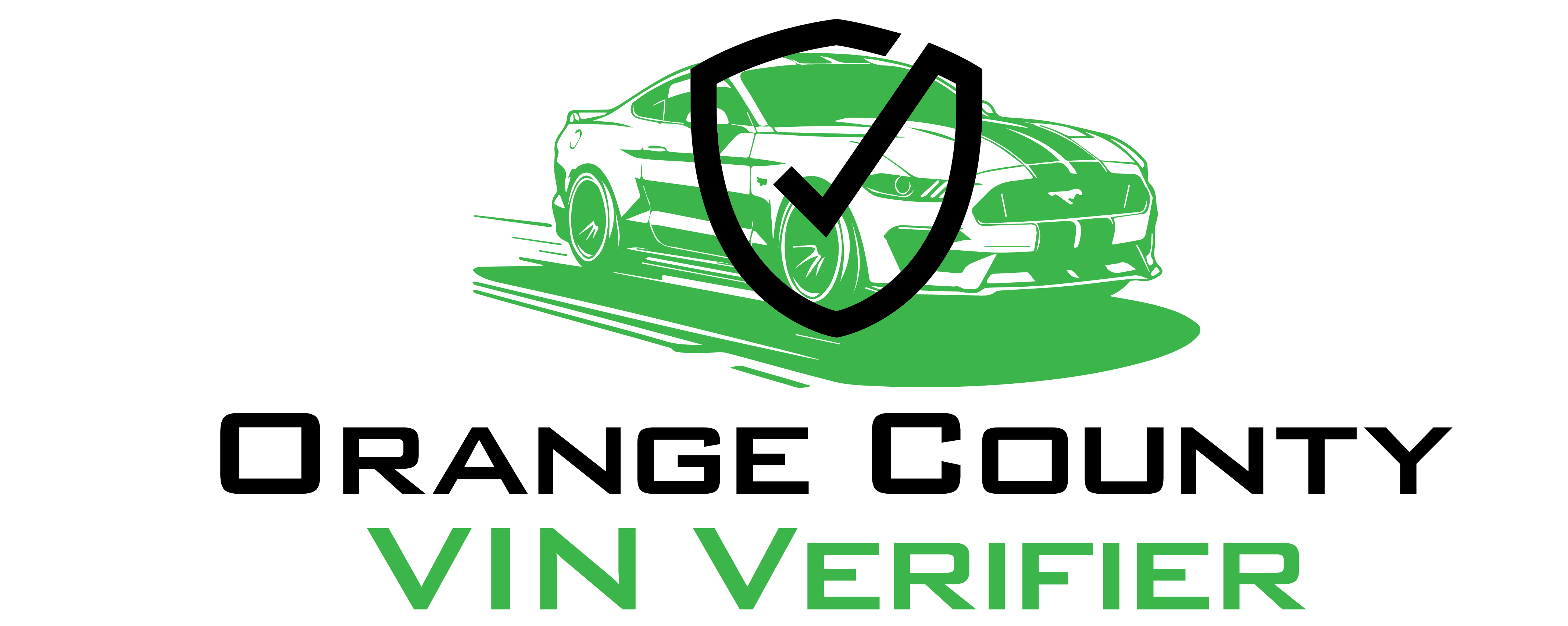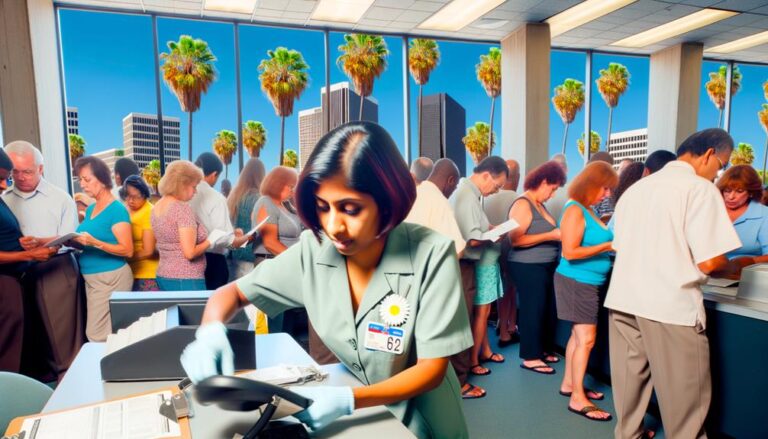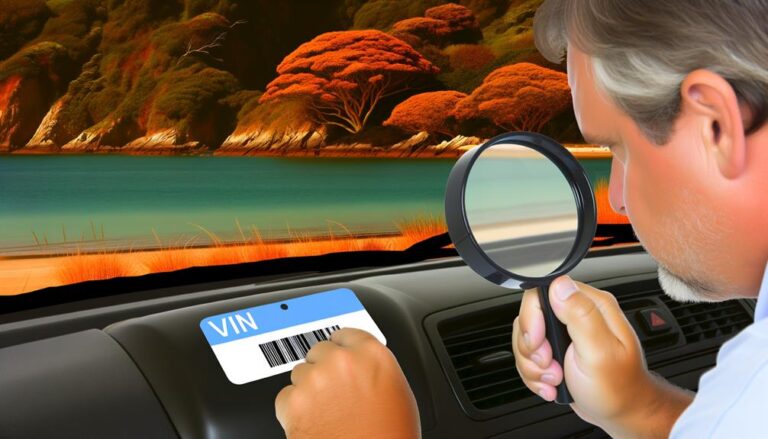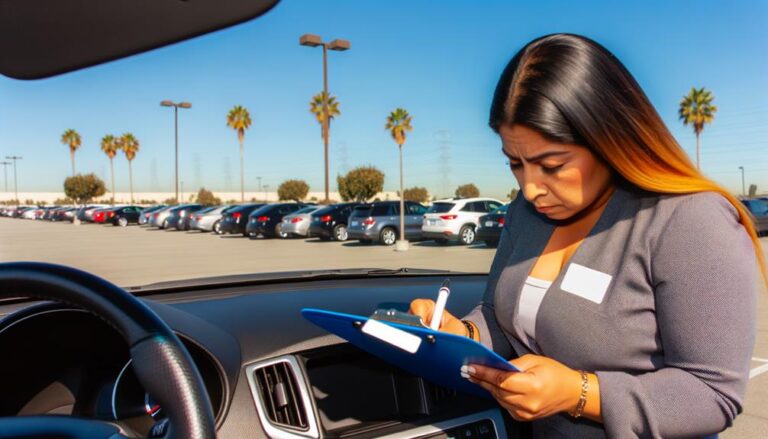When undergoing VIN verification in Orange County, it's crucial to avoid several common errors to keep the process hassle-free. Ensure the VIN plate is clean and legible, confirming the 17-character code matches exactly on all documents, especially the Manufacturer's Statement of Origin. Avoid using the letters I, O, and Q, as these can be mistaken for numbers. Always double-check the VIN isn't just correct, but also complete, avoiding any wrongful entries of invalid characters or transposed digits. Have your VIN inspection performed by a licensed professional to uncover potential discrepancies, including hidden VINs that might not align. Learning these tips will greatly reduce the possibility of registration issues.
Overlooking VIN Clarity
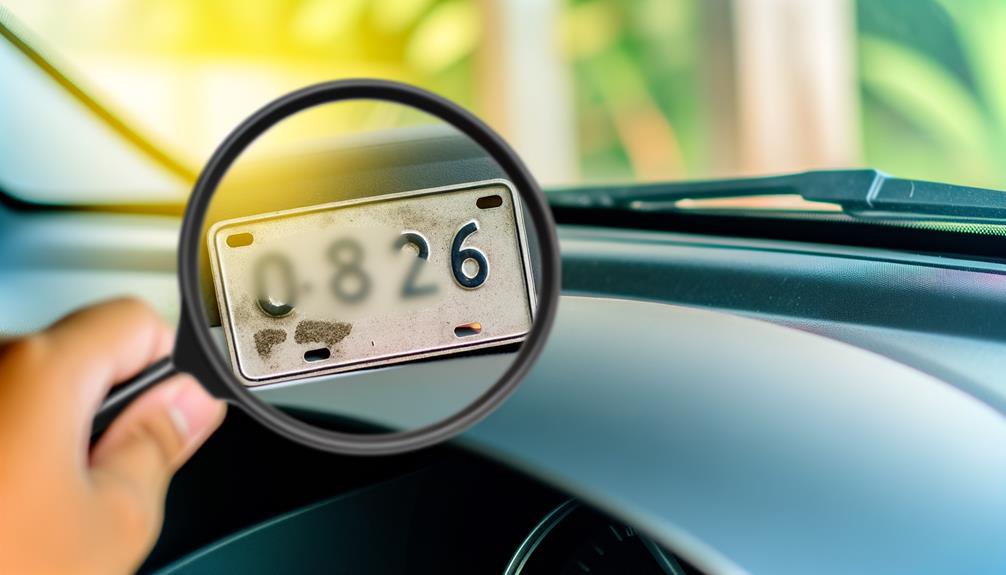
One often overlooks the clarity of the Vehicle Identification Number (VIN) during verification, yet this step is critical. Ensuring the VIN plate is clean and the alphanumeric characters are distinct is paramount. Blurred VINs can significantly obstruct the verification process, leading to potential misidentification. This risks not only procedural delays but also legal complications.
Remember, the VIN is your vehicle's unique identifier. It must consist of exactly 17 characters, excluding the letters I, O, and Q to prevent confusion. Any discrepancy in this precise sequence can hint at broader issues—accidental omissions or unauthorized alterations—that could complicate your verification efforts. It's essential to double-check that each character is accurately reflected and matches the supporting documents. Discrepancies here can trigger additional inspections, adding to your wait and frustration.
To avoid these hurdles, ensure the VIN plate itself is accessible and unobstructed. Dirt, wear, or damage can all obscure the VIN, making it difficult to verify against official records. Prior to inspection, take a moment to clean the VIN plate area, ensuring each letter and number is legible. This simple step not only streamlines the verification process but safeguards your freedom to use and enjoy your vehicle without legal entanglements.
Moreover, ensuring accurate documentation on the REG 31 form by verifying all details matches the physical inspection is equally crucial for the legitimacy of the process.
Mismatching Documentation
Although your vehicle may pass a visual inspection, mismatching documentation between the VIN on your vehicle and the details listed on your title or registration documents can halt the verification process. Such discrepancies are more than just procedural annoyances; they could imply deeper issues or simple clerical errors that need rectification to ensure compliance with DMV standards.
When it comes to VIN verification, every detail matters. The California DMV insists that the VIN on your vehicle exactly matches the VIN on your registration and title documents. If there's a typo or any inconsistency in the vehicle's make, model, or year between your documents and what's on your car, you're looking at potential delays or even rejection of your registration application.
It's crucial to cross-reference the VIN with the Manufacturer's Statement of Origin and any supporting documents to verify that all information aligns perfectly. In addition to these checks, ensuring that the VIN verification is handled by a licensed verifier is essential, as they're specially trained to spot any discrepancies and are familiar with state compliance requirements.
Don't overlook the importance of checking for hidden VINs, which can be located in several parts of your vehicle. Missing out on verifying these hidden identifiers can lead to an incomplete verification process, especially since some documentation might rely on these less visible numbers.
Always ensure every VIN is accounted for and matches across all your documentation.
Ignoring VIN Length
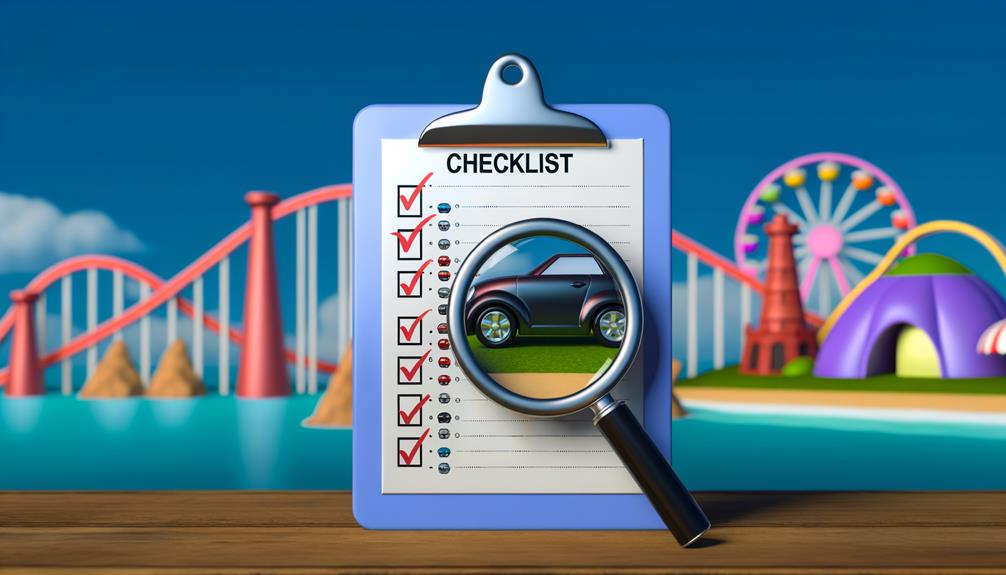
After ensuring the VIN matches across all documents, you must also pay attention to the VIN's length to avoid further complications. An accurate VIN length is crucial for the verification process, helping ensure that your vehicle identification is undisputed and aligns with legal compliance standards in Orange County.
Here's why you shouldn't overlook this detail:
- Ensuring Data Integrity: A VIN with the correct 17-character length prevents data mismatches that can severely impede the registration process.
- Avoiding Legal Snags: Incorrect VIN length can lead to errors in documentation, resulting in potential legal issues that might restrict your freedom to use your vehicle.
- Streamlining Verification: An accurate VIN simplifies the verification process, making it faster and more efficient, thus saving you time and frustration.
- Improving Vehicle Management: With an accurate VIN, managing your vehicle's history and records becomes more straightforward, ensuring a smoother experience in vehicle transactions and maintenance.
Always double-check the VIN length against official documents to confirm its accuracy.
Don't let a simple oversight complicate your vehicle management and registration process in Orange County. An accurate VIN supports your independence and ensures a hassle-free verification experience.
Using Invalid Characters
In your VIN verification process, beware of using invalid characters; this common oversight can significantly complicate matters. The Vehicle Identification Number (VIN) is essential for confirming a vehicle's identity and ensuring the legitimacy of its registration in California.
Every VIN, comprising exactly 17 alphanumeric characters, excludes certain letters—specifically, I, O, and Q—to avoid confusion with numbers like 1 and 0. Including these invalid characters can result in misidentification and cause errors during the VIN verification process.
It's imperative to double-check each character in your VIN for accuracy. Transposed digits can compromise data integrity and must be avoided to maintain the validity of your vehicle's official documentation. These errors not only delay the process but may also introduce legal issues in your vehicle ownership verification.
Always validate your VIN against the official documentation before submitting it for verification. Ensuring that there are no invalid characters or discrepancies is crucial for a smooth registration process.
Skipping Professional Checks
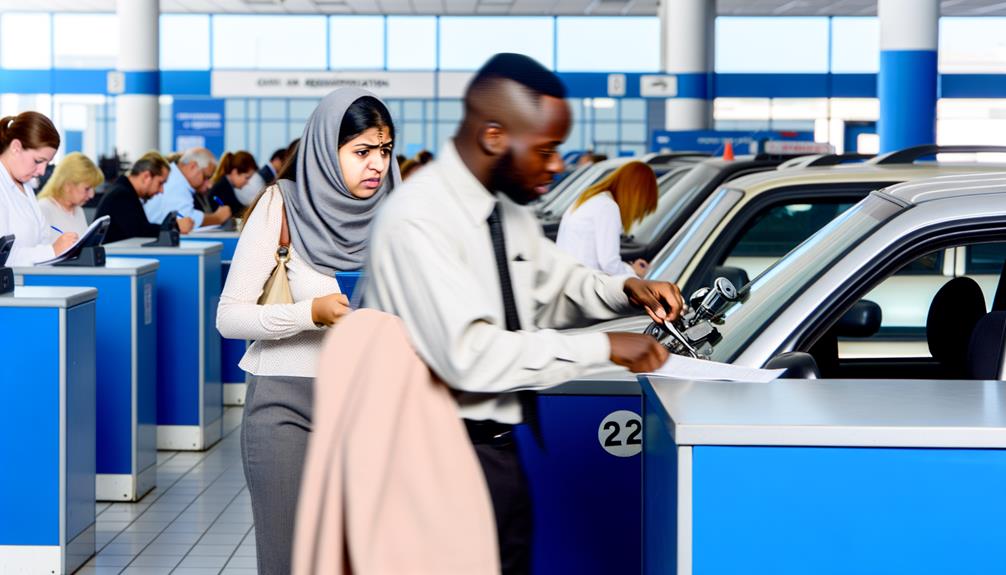
Skipping professional checks during the VIN verification process exposes you to significant risks, such as inadvertently purchasing a vehicle with a tampered or stolen VIN.
When you bypass expert inspections offered by entities like the California DMV or CHP, you're not just cutting corners—you're potentially setting yourself up for a world of frustration and legal entanglements.
Consider the consequences of not engaging with professional VIN verification services:
- Legal Complications: You risk legal issues if your new vehicle is found to have a stolen or tampered VIN.
- Registration Delays: Any discrepancies between the VIN and supporting documents often result in delays or outright denial of your vehicle's registration.
- Missed Hidden VINs: Professionals are trained to identify hidden VINs, ensuring that your vehicle complies with state regulations, crucial for previously altered vehicles.
- Incomplete Inspections: Online tools can't match the thoroughness of a physical inspection, potentially overlooking critical details that impact the legality and safety of your vehicle.
Aiming for freedom in your vehicular transactions means adhering to state regulations and ensuring every step, including professional VIN verification, is meticulously followed.
Don't let the desire for convenience overshadow the necessity for thoroughness.
Frequently Asked Questions
What Do They Check for VIN Verification in California?
In California, during the VIN verification process, they'll check your vehicle's VIN against title documents, assess its location, and ensure it matches federal safety labels. They'll document wheels, axles, and perform VIN history checks.
How Much Does a VIN Verification Cost in California?
In California, VIN verification fees vary significantly. DMV and CHP offer free services; however, private service charges range from $35 to $147, influenced by location and additional services like title transfers and registration expenses.
Does AAA Do VIN Verification in California?
Yes, AAA does perform VIN verification in California, but it's limited to members. They'll check your vehicle's history and help with title transfers, ensuring the verification process meets DMV requirements and prevents fraud.
Can CHP Do a VIN Verification?
Yes, CHP can perform VIN verifications. You'll need to check vehicle eligibility, prepare necessary documentation, and contact authorized locations to understand their verification process, timeframe, and how they handle common issues like VIN discrepancies.
